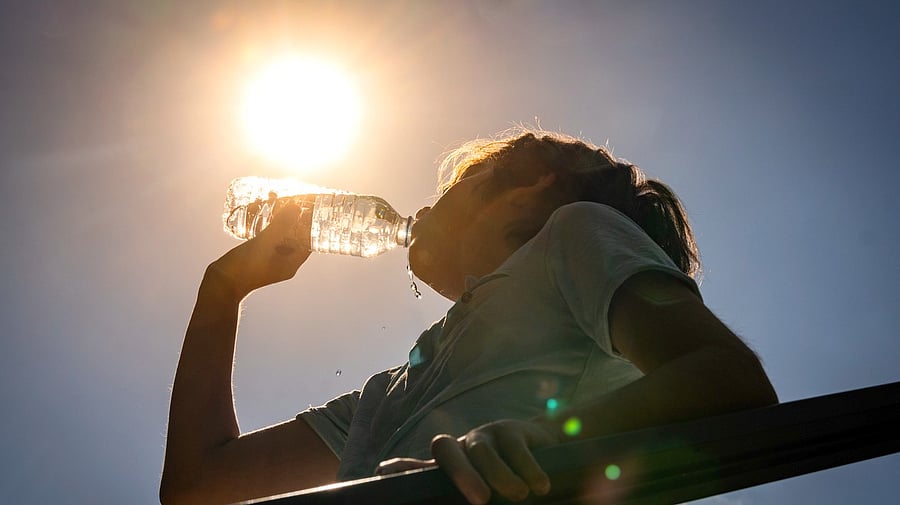
Representative image of hot weather.
Credit: iStock Photo
Bengaluru: Due to dry weather prevailing across the state and in Bengaluru for the rest of this week, the government agencies, including the state health department and the India Meteorological Department (IMD) have suggested protective measures against heat-related issues.
The IMD’s Meteorological Centre noted on Monday that heat wave conditions are likely to prevail over Uttara Kannada district until Tuesday. The Centre has found maximum temperatures in the range of 35°C to 38°C over coastal Karnataka, a similar range across districts in North Interior Karnataka and districts such as Mandya, Shivamogga in South Interior Karnataka, besides a range of 32°C to 34°C in Bengaluru.
In the past 24 hours, there has been an appreciable rise (over 2.5°C) in maximum temperatures in Koppal and Chintamani, with no major changes over the rest of Karnataka.
However, the Centre noted that the maximum temperature was above normal over the Bengaluru international airport (KIAL). Bengaluru is likely to experience maximum and minimum temperatures of 33°C and 20°C respectively, as per the IMD forecast.
Both the IMD and the state health department, which put out a heat advisory on Sunday, suggested people, especially vulnerable populations such as infants, children, pregnant women, the elderly and those with chronic physical and mental illness, to avoid heat exposure, especially during noon, wear lightweight and light-coloured cotton clothing, and cover their heads.
The health department noted heat-related illnesses include heat rashes, oedema (swelling of hands and feet), muscle cramps, fainting, exhaustion and heat stroke. It could also exacerbate chronic diseases.
An advisory asked people to drink liquids and seek immediate medical attention if any heat stress symptoms are observed.
“Call 108 or 102 immediately if you find someone with a high body temperature and is either unconscious, confused or has stopped sweating,” said their advisory.
Symptoms of heat stress in adults:
• Dizziness, light-headedness or fainting
• Nausea or vomiting
• Muscle weakness or cramps
• Altered mental state, confusion or agitation, irritability
• Headache and extreme thirst, decreased urination
• Rapid breathing and heartbeat
Heatstroke signs in children
• Refusal to feed, excessive irritability
• Dry oral mucosa and absence of tears or sunken eyes
• Lethargy, bleeding, seizures
Do’s and dont’s during heat wave:
• Drink sufficient water and carry drinking water while travelling.
• Use Oral Rehydration Solution (ORS) and homemade drinks like lemon water, butter milk/lassi, fruit juices with added salt, besides seasonal fruits with a high water content.
• Follow local weather updates via radio, television, newspapers and official websites and handles of the Karnataka State Natural Disaster Monitoring Centre and the IMD.
• Limit outdoor activity to cooler times of the day – before 11 am or after 4 pm.
• Close curtains during the day, remain in lower floors and well-ventilated places, and use fans and damp clothes to cool off during the day.
• Avoid alcohol, tea, coffee and carbonated soft and sugary drinks.
• Do not leave children and pets in parked vehicles.